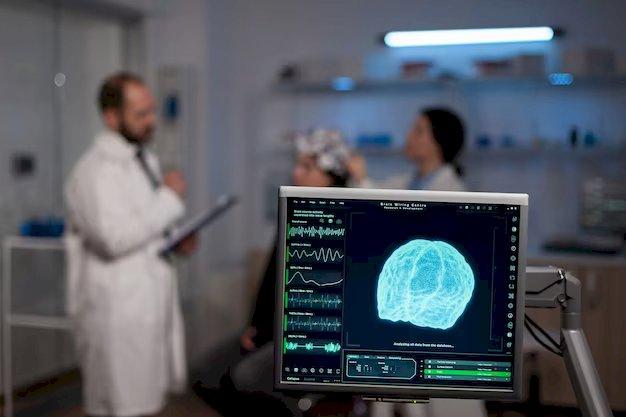Drug Discovery and Development: How AI is Revolutionizing Pharmaceuticals
Discover how Artificial Intelligence (AI) is revolutionizing drug discovery and development in the pharmaceutical industry. Explore the advancements, challenges, and ethical considerations that accompany this transformative shift, promising faster and more targeted therapies for the future.

Introduction
The pharmaceutical industry is on the brink of a revolution, and Artificial Intelligence (AI) is at the forefront of this transformation. Developing new drugs has traditionally been a slow, expensive, and risky process, but AI is changing the game. In this comprehensive guide, we will explore how AI is revolutionizing drug discovery and development, accelerating the journey from laboratory to pharmacy shelves. We'll delve into the key advancements, challenges, and ethical considerations that accompany this groundbreaking shift in the pharmaceutical landscape.
Chapter 1: The Drug Discovery Dilemma
Drug discovery and development have long been plagued by challenges:
-
High Costs: Developing a new drug can cost billions of dollars and take over a decade.
-
Low Success Rates: The majority of drug candidates fail to make it to market, leading to substantial financial losses.
-
Complexity: Understanding the human body's intricate molecular mechanisms and identifying potential drug targets is a formidable task.
Chapter 2: How AI is Transforming Drug Discovery
AI is offering solutions to these longstanding challenges:
-
Data Analysis: AI can analyze vast datasets, including genetic information, medical records, and chemical properties, to identify potential drug candidates.
-
Drug Repurposing: AI algorithms can repurpose existing drugs for new applications by identifying overlooked uses.
-
Speeding Up Clinical Trials: AI helps optimize clinical trial design, identify suitable patient cohorts, and predict patient responses, reducing trial duration.
Chapter 3: AI-Driven Drug Design
AI accelerates the drug design process:
-
Generative Models: AI-generated molecules are designed to interact with specific biological targets, reducing the need for trial and error.
-
Chemical Synthesis Optimization: AI suggests the most efficient routes for chemical synthesis, saving time and resources.
Chapter 4: Target Identification and Biomarker Discovery
AI plays a pivotal role in identifying potential drug targets and biomarkers:
-
Genomic Analysis: AI analyzes genetic data to pinpoint genetic variations associated with diseases, helping identify potential drug targets.
-
Early Disease Detection: AI helps discover biomarkers that enable early disease detection and intervention.
Chapter 5: Challenges and Ethical Considerations
As AI takes center stage in pharmaceuticals, challenges and ethical considerations emerge:
-
Data Privacy: Handling sensitive patient data and ensuring privacy are paramount.
-
Bias in Data: Ensuring AI algorithms are not biased toward certain demographics is essential for equitable drug development.
-
Regulatory Hurdles: Navigating the regulatory landscape and ensuring AI-generated drug candidates meet safety and efficacy standards is a complex task.
Chapter 6: Successful AI Applications in Drug Development
Explore real-world examples of AI's impact in drug discovery and development:
-
IBM Watson for Drug Discovery: IBM's AI system helps identify potential drug candidates by analyzing vast biomedical datasets.
-
Insilico Medicine: This company uses AI to design molecules with the potential to treat various diseases, significantly speeding up the drug discovery process.
Chapter 7: Future Possibilities and Collaborations
The future of AI in pharmaceuticals is promising:
-
Personalized Medicine: AI-driven treatments tailored to individual patients are on the horizon.
-
Drug Combination Predictions: AI will help identify optimal combinations of existing drugs for more effective treatments.
-
Global Collaborations: International collaboration is essential for creating standardized AI-driven drug discovery processes and ensuring equitable access to innovative treatments.
Conclusion
AI is ushering in a new era of drug discovery and development, offering hope for faster, more cost-effective, and targeted therapies. While challenges and ethical considerations must be addressed, the potential benefits for patients and society as a whole are immense. The pharmaceutical industry's embrace of AI is not only revolutionizing the drug development process but also shaping the future of healthcare, promising breakthroughs that were once thought impossible. As AI continues to evolve, we can anticipate even more remarkable advancements that will transform the way we combat diseases and improve the quality of life for people around the world.

 bloggeramar
bloggeramar 

































